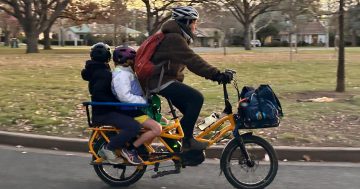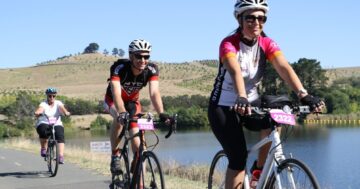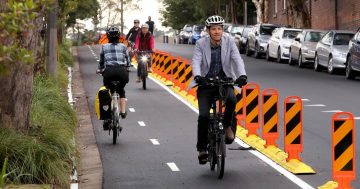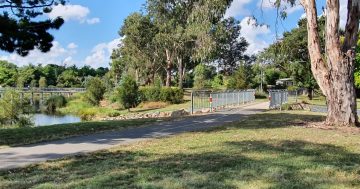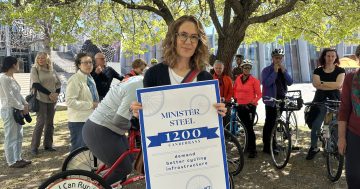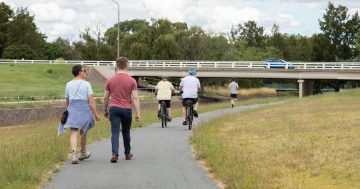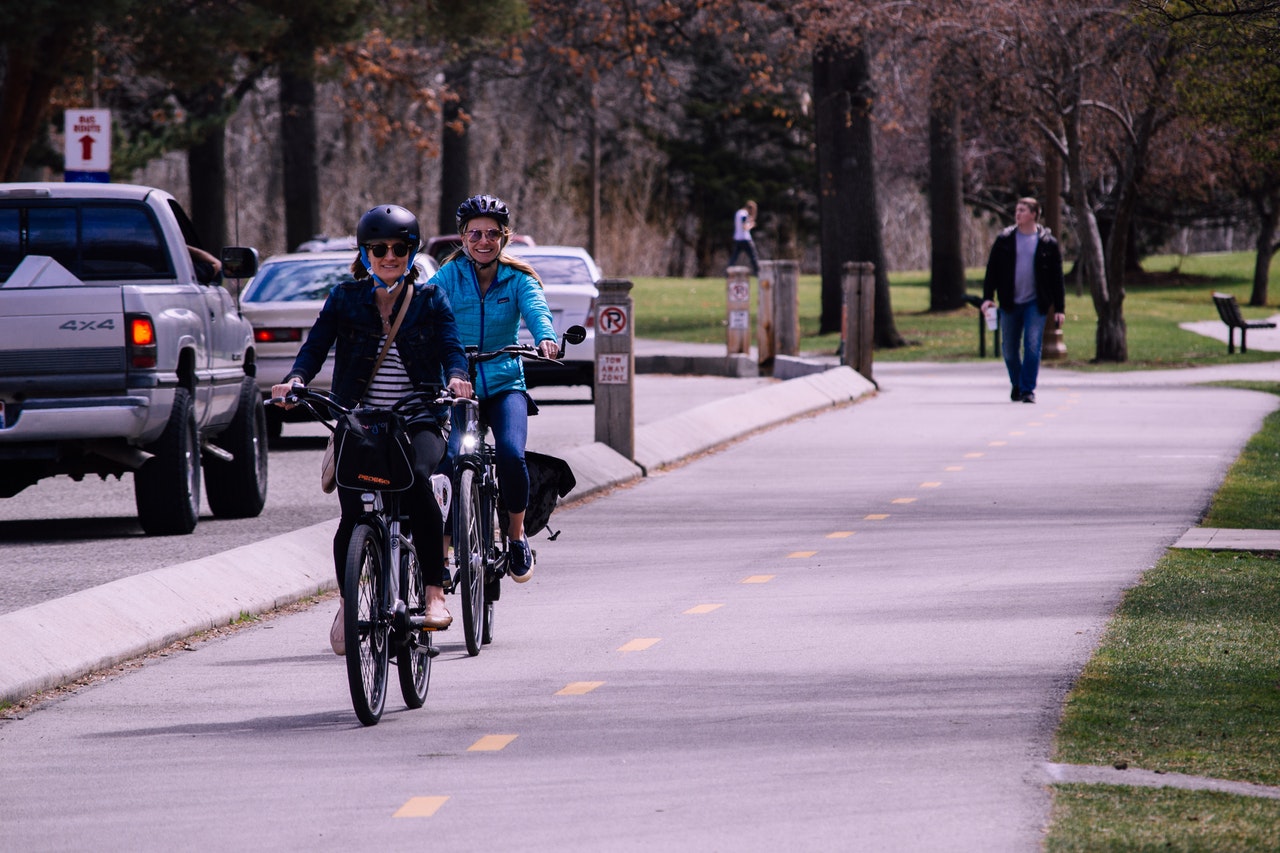
With safe cycle paths, and a friend to ride with, we can support more women to take up cycling. Photo: Brett Sayles.
Many Australian women will have memories of learning to ride a bike as a kid, perhaps riding their bicycle to school. But by adulthood, far fewer women are riding bikes regularly. Given that we all know that cycling is cheaper than driving to work or school, and better for our fitness, and many of us remember how much fun it was as a kid, there must be something that is stopping us from getting back on our bikes.
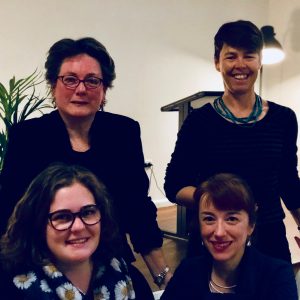
Kate Auty, Anne Napier, Emily Banks, and Amelia Dillon at the Active Travel Office forum on 4 September 2018. Photo: Emma Davidson.
On Tuesday night, the ACT Government’s Active Travel Office held a forum at the RUC in Turner to talk with women about barriers to cycling, and what we can do to make it easier for women to cycle more often.
In other countries, it is common for people to use different types of transport for different trips. A person might drive their car on the weekend to do grocery shopping, ride a bike to work, and take the bus or train to go to big events. In Canberra, many people do most of their travel with one type of transport. It’s worth thinking about whether our usual transport – a car, for many people – is actually the best option for some trips. For example, it is sometimes quicker to walk or ride a bike for a short trip to a nearby shopping centre where parking is scarce, or to visit a friend who is in the same suburb.
Professor Emily Banks, from ANU’s Research School of Population Health, talked about making the default to cycle or choose active travel, rather than it having to be a conscious choice. If we can shift our thinking in that way, we can make an impact on the health of the population as a whole.
Most of the women at the forum were already regularly riding bikes, recreationally or as commuters. There were e-bike riders, mountain bikes, and even a unicyclist. Virginia, an older lady who was there with her partner, talked about feeling a sense of freedom when riding her e-bike. She has ridden 8,700km since February, and she usually rides in her regular clothes – she doesn’t need to wear fitness clothing or cycling gear.
Tania shared the enjoyment of commuting by bike as her “me time – the time is just mine, not my husband’s or my kids”. For women who want to cycle to work or school, wearing warmer clothes in winter or getting a locker at work can make it a more pleasant experience. While we still have a long way to go, growing numbers of workplaces in the ACT now have showers and facilities for cyclists. It’s worth asking what’s available at your office.
Women at the forum talked about the feeling of judgement that many women experience when they are trying new things, and having to shift that internal dialogue away from negative thoughts. For some women, riding in groups or with a friend can be a fun way to get back into riding regularly, but they don’t have the social connections with other cyclists. Connecting with groups like Women’s Adventure ACT or Pedal Power ACT is a great place to start.
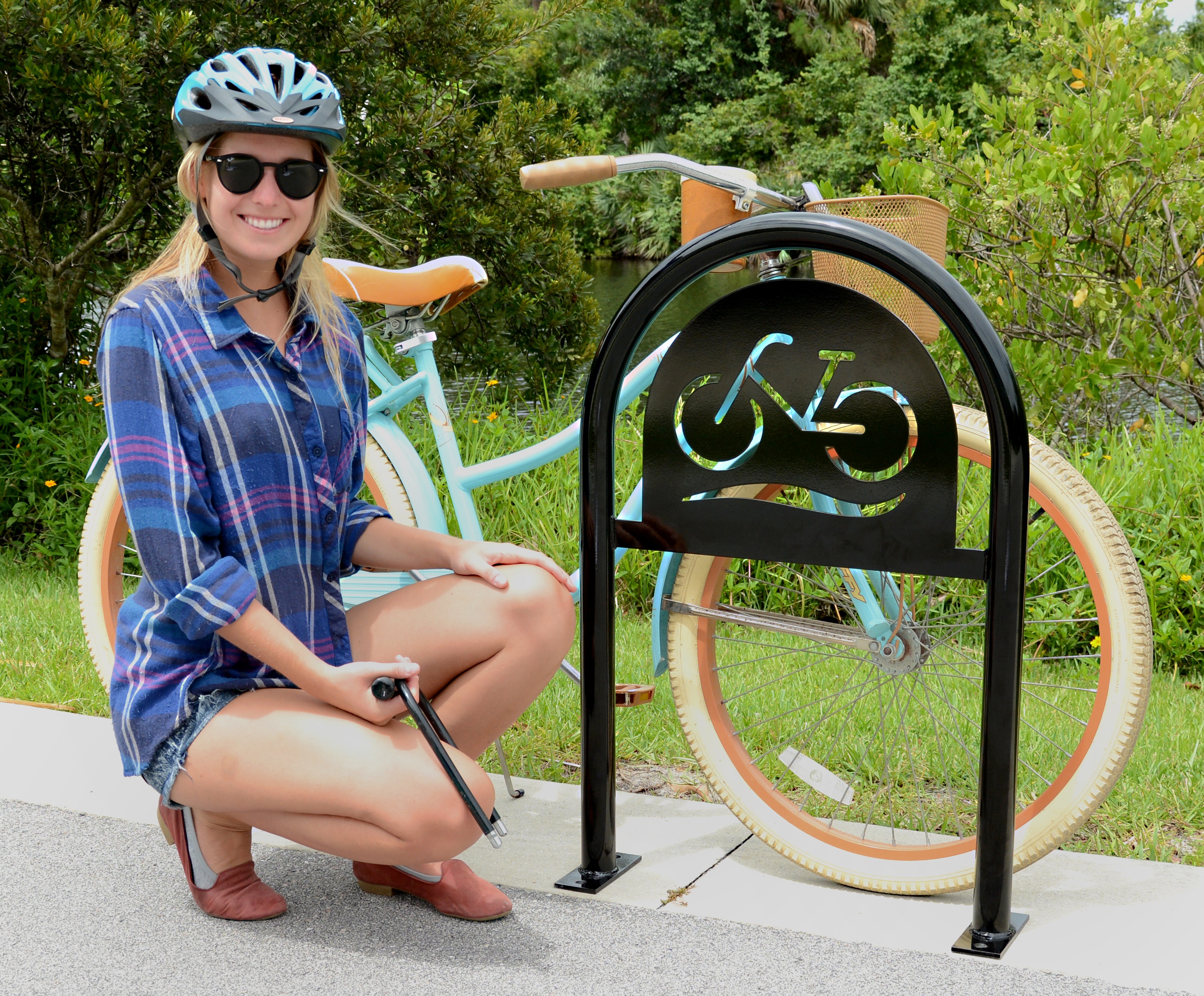
Knowing where to find cycle paths and infrastructure makes it easier to get started as a cyclist. Photo: Robert Caston.
One of the attendees talked about the difficulty, as a migrant, of knowing where cycling paths are. The Active Travel Office has a map of cycle paths in Canberra and Queanbeyan. Sophie from Girls on Bikes shared news about their program, supported by Pedal Power ACT and YWCA Canberra, aimed at getting more migrant and refugee women in the Canberra community onto bikes. The program provides the women with a free bicycle and a place in a five-week learn-to-ride group program, which sounds like a great way to make connections with other women getting to know Canberra by bicycle.
Dionne shared her experience of getting to know new cities by bicycle, as there are things you notice on a bike that you may not notice from the inside of a car. If you’re cycling home in the inner north one day and pass a cheerful woman who smiles and waves, that might be Dionne – she says she often finds a sense of shared happiness from other women who smile and wave as they pass her.
Professor Lyndall Strazdins from ANU talked about the fact that women, more than anyone else, lack time. Time is our most precious resource, and supporting women’s routines is important. Connecting their time to other things that really matter to them, like their children, can help. She noted that women will do things for their children that they wouldn’t do for themselves.
“We could make life a whole lot easier for people if we took their time seriously in designing our spaces and services”, Professor Strazdins said.

Active Travel Office are hosting a new parents meet-up at the Belconnen Learn-to-Ride Centre on Friday 7 September, so that parents of young children can come along with their kids and check out some fun ways to ride as a family.
Knowing how to take care of your bike is also important. The Recyclery at Canberra Environment Centre can also teach you how to maintain and repair your bike yourself. Active Travel Office are running a women’s bike maintenance course on Saturday 8 September.
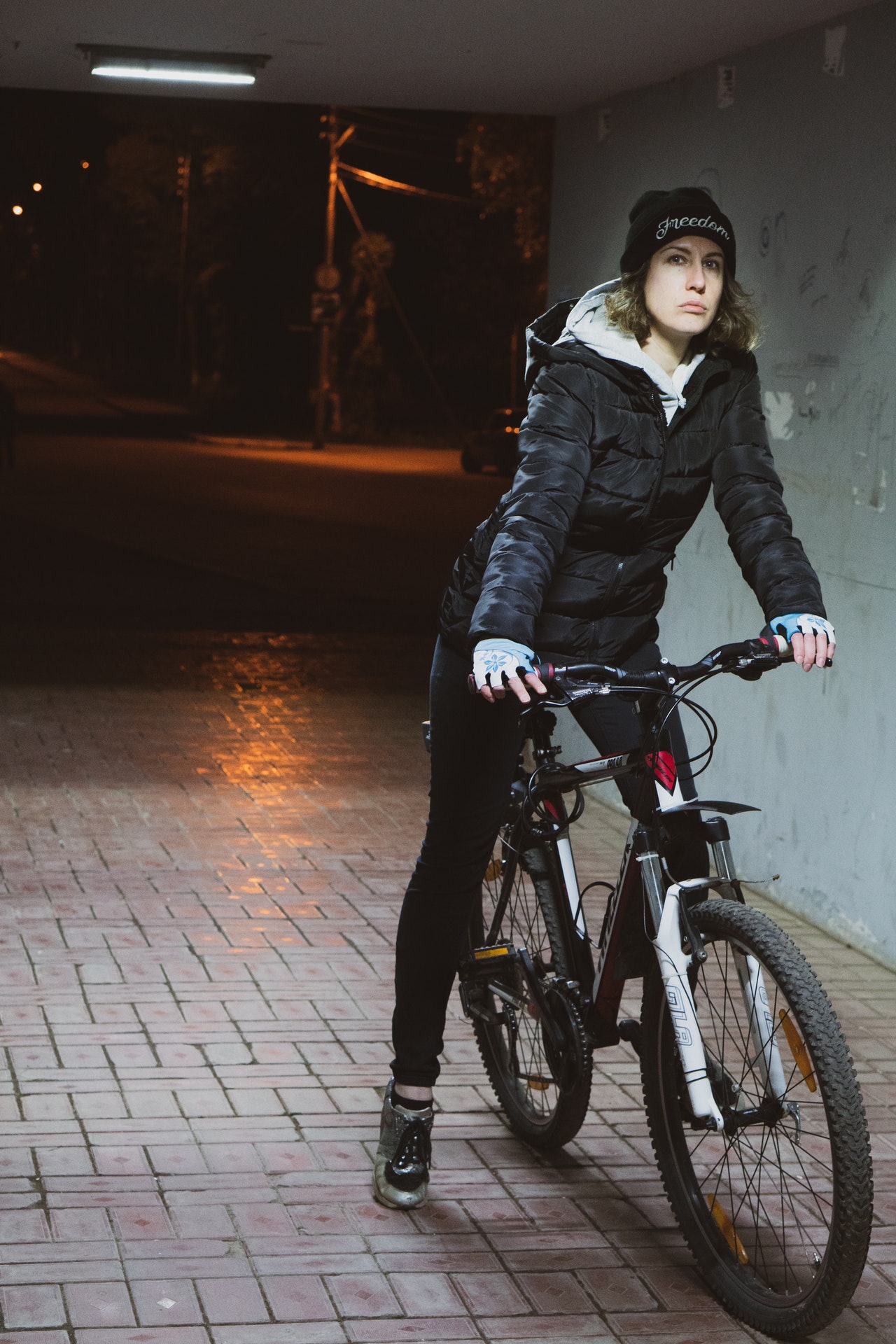
Most women who participated in WCHM’s Safety Map project said they feel unsafe in areas like dark underpasses. Photo: Ruslan Platinium.
Research by the Women’s Centre for Health Matters shows that feelings of safety are important in women’s decisions about where and when they walk or cycle. When a cycle path is in an area that is poorly lit, has visibility barriers such as trees or walls, creates a feeling of entrapment where it would be hard to escape if attacked, or areas that are isolated or the only other users in the area might present a threat to safety, women will avoid the area. Some women will choose to take a longer route that is better lit and has good visibility to the road or surrounding shopfronts, where they can see and avoid potential safety risks and know that someone will see them if they need help. Other women will stay home or will drive a car when they would have preferred to walk or cycle after dark. By planning our public spaces for active use by a diverse range of people in our community, and having well lit, open areas, we can support more women to choose active travel.
Curious about cycling? Got ideas or questions? Women’s Centre for Health Matters and Active Travel Office are hosting a workshop in Tuggeranong on Friday 7 September to talk about how we can make it easier for women in Tuggeranong to get into cycling. Check out an e-bike, meet other women who want to get active, see the new cycling maps, and ask all the questions you’ve always wanted answers to.












